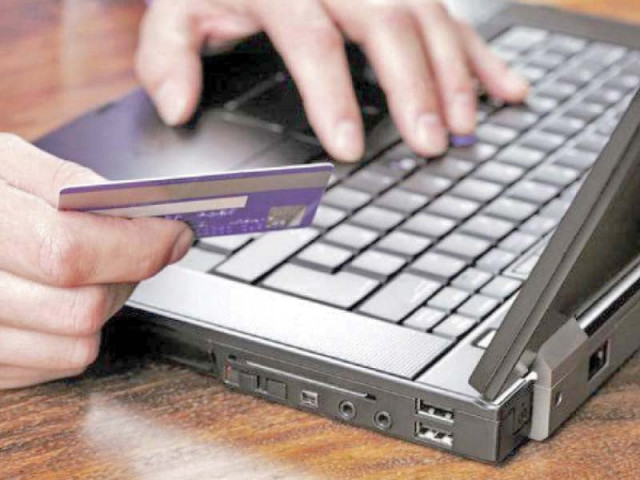P2M option deployed on Raast
Person-to-merchant payments will reduce use of cash, document economy

Pakistan’s central bank has deployed the person-to-merchant (P2M) online payment option on its instant payment system, Raast, which is a step forward towards reducing the use of cash, documenting and digitalising the economy.
The State Bank of Pakistan (SBP) is expected to formally launch the new payment option in the next couple of weeks. Six entities including five banks have already become part of the new journey.
P2M enables people to pay directly to merchants for shopping, dining and pay monthly utility bills through the QR code.
Speaking at the 21st Conference on “Future Banking Summit 2023” on Tuesday, SBP Director at Payment Systems Policy and Oversight Department Qazi Shoaib Ahmad said “P2M has also been deployed on September 3, 2023.”
Raast is an initiative of the SBP that enables instant end-to-end digital payments among individuals, businesses and government entities.
“P2M will be a game changer in terms of adoption of Raast at the industry level,” he said, adding that the six entities were Bank Alfalah, MCB Bank, Allied Bank, JS Bank, Easypaisa and 1Link.
The State Bank is working to bring more banks on board on the P2M journey. Few of them are in pilot stages.
A leading bank told The Express Tribune that people were already making payments through the QR code worth Rs500 million a month, indicating that a hassle-free and seamless payment system was already in place. The addition of P2M may increase the quantum of financial transactions through online banking.
He pointed out that there were around 3 to 4 million merchants in the country, who would be the potential beneficiaries of the instant payment system.
Earlier, according to SBP Director Ahmad, the central bank launched two options on Raast namely person-to-person (P2P) and bulk payment transfers.
The central bank has already issued standards on the interoperable QR code. The QR code has been part of the P2P and P2M use cases of Raast.
“We believe that this is the way forward and QR payment will be a game changer. It would be the most useful utility for the unbanked population,” he said.
The initial adoption of Raast has been wonderful. So far, more than 32 million account holders had been registered with Raast and 225 million transactions had been done through the platform amounting to more than Rs4.6 trillion, Ahmad said.
In its Payment System Review for the quarter ended March 31, 2023, the central bank reported that the circulation of physical currency rose by almost 5%, reaching Rs8.06 trillion in the Jan-Mar quarter compared to Rs7.69 trillion in the previous quarter.
Experts said that the increasing use of cash was causing high inflation and supporting growth of the undocumented economy. The parallel economy was not letting the documented economy stabilise and achieve sustainability, they said.
Ahmad revealed that the SBP was working on a project to prevent digital frauds through deploying artificial intelligence (AI).
“We are working on two initiatives. One is in-house and the other ... we are working with an international vendor. So, we are basically working on the model for predicting frauds.
“Once this model is developed, we plan to embed it on the Raast platform. It will certainly be quite helpful in terms of protecting customers from potential frauds.”
He said that another area in new technology was the use of blockchain and its use in terms of developing the central bank digital currency (CBDC).
The central bank is keenly learning how digital currencies are working globally. The initiative may help it to develop CBDC in future.
Globally, interest has been seen in digital currencies. The SBP is keen on learning from other central banks and is in touch with the international financial institutions (IFIs) such as the World Bank and the International Monetary Fund.
“We are trying to understand different dimensions of CBDC. So, we are creating this path quite cautiously. The State Bank has also taken industry consultation on this front specially,” Ahmad said.
Coach at Planet N and Raqami Bank Nadeem Hussain said that the five digital banks which got the SBP’s licence in principle last week were going to revolutionise the lending landscape in Pakistan.
“Lending would remain the key to success for digital banks. They are expected to lend more than conventional banks in five years. They, however, would remain dependent on their partners to generate deposits.”
Digital banks are expected to reduce the bank account opening duration for corporate entities to around one day compared to around one month required at present. Similarly, they will be lending funds to industries in one-day duration compared to around one month these days, he said.
P@SHA Chairman Zohaib Khan urged banks to facilitate IT and software freelancers in freely moving their foreign earnings inside and outside of Pakistan. The increased facilitation would help accelerate foreign currency inflows in the country, he added.
Published in The Express Tribune, September 27th, 2023.
Like Business on Facebook, follow @TribuneBiz on Twitter to stay informed and join in the conversation.



















COMMENTS
Comments are moderated and generally will be posted if they are on-topic and not abusive.
For more information, please see our Comments FAQ